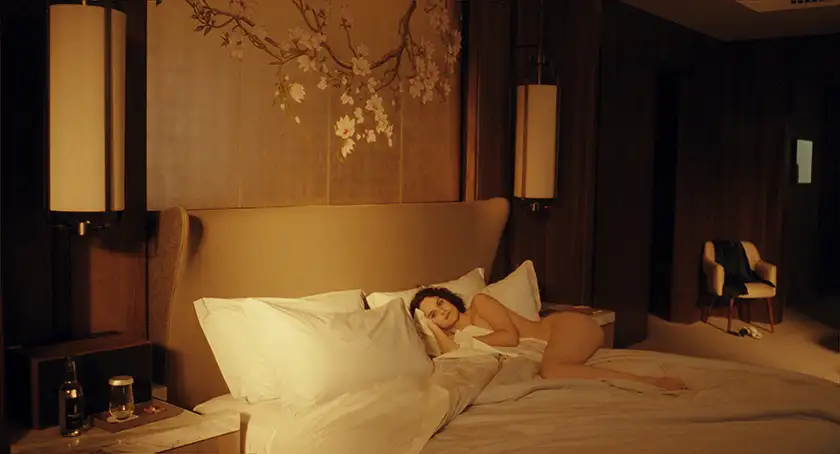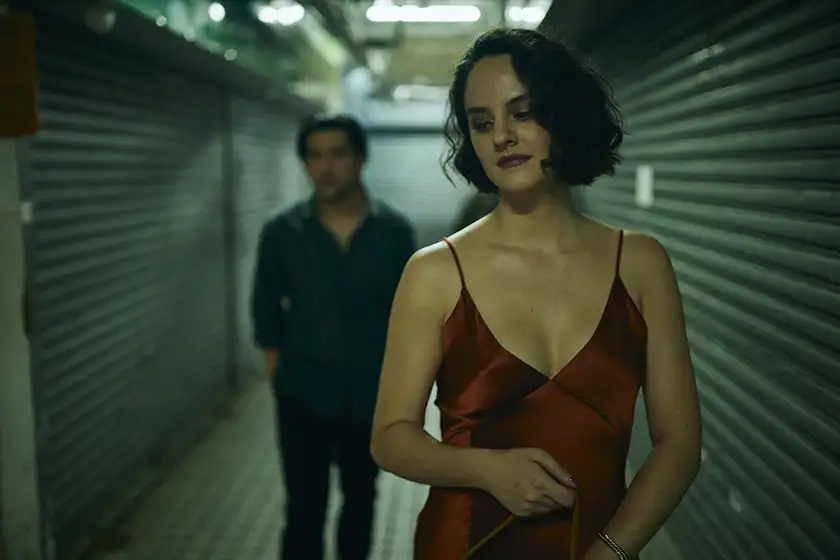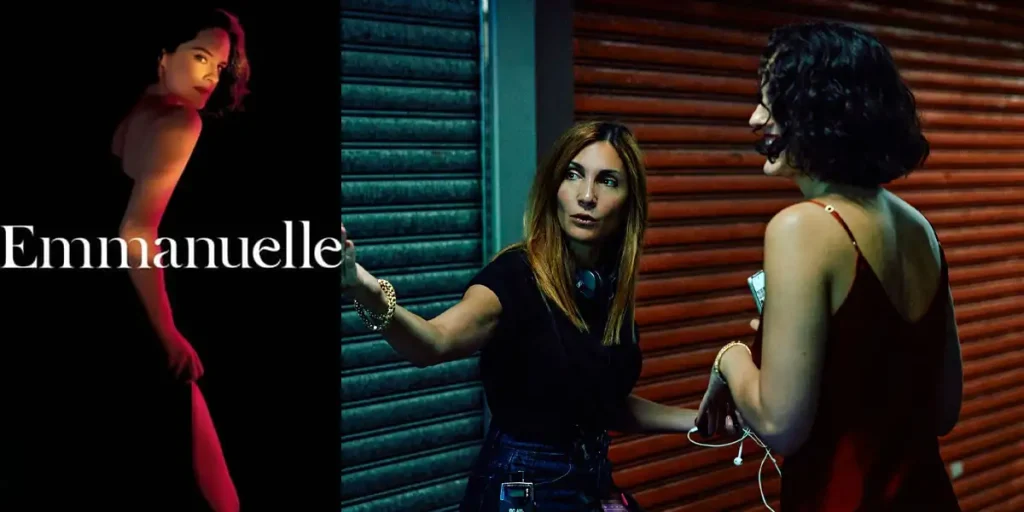We interview Audrey Diwan about her captivating adaptation of Emmanuelle, her favourite female led features, stylistic influences and more.
Emmanuelle, loosely based on the 1967 French novel of the same name, is all about finding pleasure. In Audrey Diwan’s 2025 adaptation, Noémie Merlant stars as the titular protagonist as she encounters various men and women, marking the beginning of her journey into finding true fulfillment. Unlike the 1974 adaptation, Diwan and co-writer Rebecca Zlotowski, decided to flip the script so that it focuses entirely on the female perspective and is seen solely through Emmanuelle’s eyes.
After winning the Golden Lion at the 78th Venice Film Festival for her 2021 film Happening, Diwan is no stranger to stories centred around female empowerment. She sat down with us to discuss everything from her love of Portrait of a Lady on Fire, to setting such an erotic script to the backdrop of Hong Kong. Read our interview below!
Audrey Diwan on her writing process for Emmanuelle
Hi! Thank you so much for speaking with me today. I really enjoyed Emmanuelle. At what point did you decide you wanted to adapt this novel into a feature?
Audrey Diwan: I think my process is quite slow. I always need months, maybe years. First of all I think about an idea, and then it grows. And then, one day, I’m like, “this is what I’m gonna do”. I read the book out of pure curiosity. Emmanuelle had a strong presence in France.
Was there a particular point in the book when you decided that “Emmanuelle” was something you wanted to make into a film?
A.D.: I was surprised because at the start of the book there is a very, very long conversation between Emmanuelle and – of course, because it was written in the ‘50s – an older guy. But it’s a conversation about eroticism and it goes on for nearly 100 pages. It could even be considered as philosophical.
I wondered: “can we use eroticism as a cinematographic language?” Can I narrow the frame and find the right line of electricity where people see part of the image and want to imagine the off-screen. I like this process, because I think it’s collaborative. It’s a way to respect the audience, and, as the audience myself, I like to be respected.
When you are in your early 20s it can be easier to feel something, because you seek to discover. When you go past that discovery age, it’s not always that easy. I really wanted to portray that from the first minute of the movie. Why is there sometimes a disconnect between your body and your mind? How do you reconnect with yourself and with the people you’re having sex with?

Audrey Diwan on luxury locations and female led favourites
At what point did you decide to switch from filming in Bangkok, where the book is set, to Hong Kong?
Audrey Diwan: My co-writer Rebecca Zlotowski, who is also a very good filmmaker, wanted Hong Kong and I actually didn’t. We were looking for a place that was between tradition and modernity. We wanted to play with the idea of fantasy, and I thought that Hong Kong comes with this fantasy. I was also looking for a place that can tell something about colonialism and the way it still exists even if we don’t name it.
I think that Hong Kong was many things. Before, during and after the writing process, I couldn’t even go to Hong Kong because of Covid. It was funny, because when I first got there I didn’t have much more time to decide: it’s a fascinating city, but it’s not an easy one to navigate. You’ve got big buildings and you’re surrounded by the sound, the music, and the lights everywhere. By contrast, when you are inside the luxury hotel, it’s like two halves that don’t connect.
I love how your films are beginning to have a theme of female protagonists owning their own body. What are your favourite female led films?
A.D.: There are so many! It’s so interesting that you ask. It’s not random that I asked Noémie Merlant to be in my film, as I loved Portrait of a Lady on Fire. It struck me. It still plays a big part in my subconscious.
I met Jane Campion after I won the Golden Lion and I realised I loved her movies because I loved her; I also really love The Piano Teacher. I watch movies all day long, so I could give you a list of over 100 movies.
Audrey Diwan on references in Emmanuelle and her perfect movie marathon
Were there any films that inspired Emmanuelle either stylistically or how you wanted particular characters to come across?
Audrey Diwan: Whenever you do a movie like this, that’s set in Hong Kong, you have to accept that Wong Kar-wai will be everywhere. It’s funny, because I picked a hotel that I found very beautiful and the interior architect told me that I must be inspired by In the Mood for Love.
I like to work with very different references, but nothing too direct. It doesn’t help me much. For the opening sequence, we definitely talked about Under the Skin and the strange atmosphere with the girl who wants to be followed. I even liked the way she walked. I told Noémie [Merlant] to walk like Scarlett Johansson. Like, as if she knew Kai [another passenger on the plane, played by Will Sharpe] was following her. Here, she offers her body to the gaze.

One thing I love doing is having mini movie marathons. What two films would you pair with Emmanuelle for that perfect movie marathon?
A.D.: That’s so hard but so interesting. Let’s play with the references. I would love people to watch Shame [Steve McQueen] first, Emmanuelle, then In the Mood for Love. They’re all about sexuality but not trying to be performative. Those three are all honest films when it comes to portraying problems in pleasure. They’re all connected.
This interview was edited for length and clarity.
Emmanuelle was released in UK and Irish cinemas on 17 January 2025 and will be available on digital platforms from 24 January. The US release date is TBA.
Header credits: Poster for Emmanuelle / Audrey Diwan and Noémie Merlant on the set of Emmanuelle (Altitude / Manuel Moutier)

